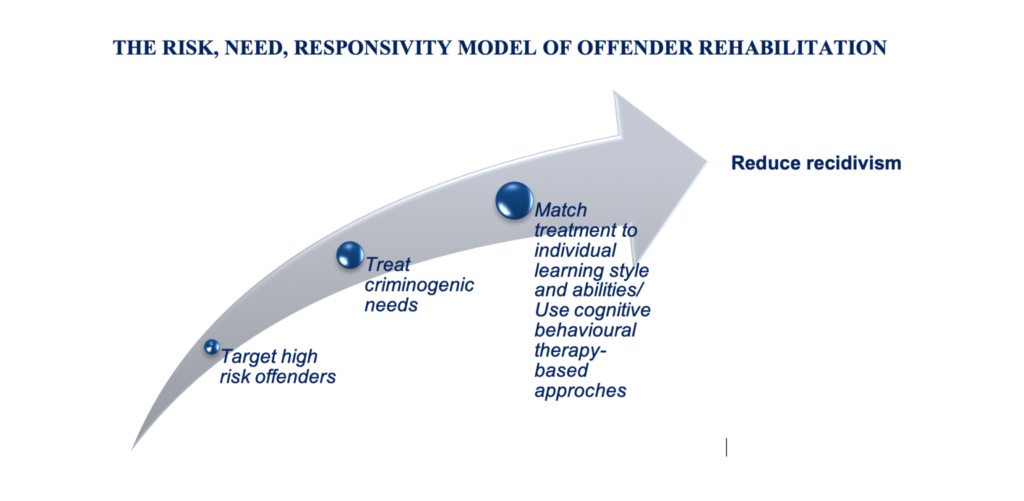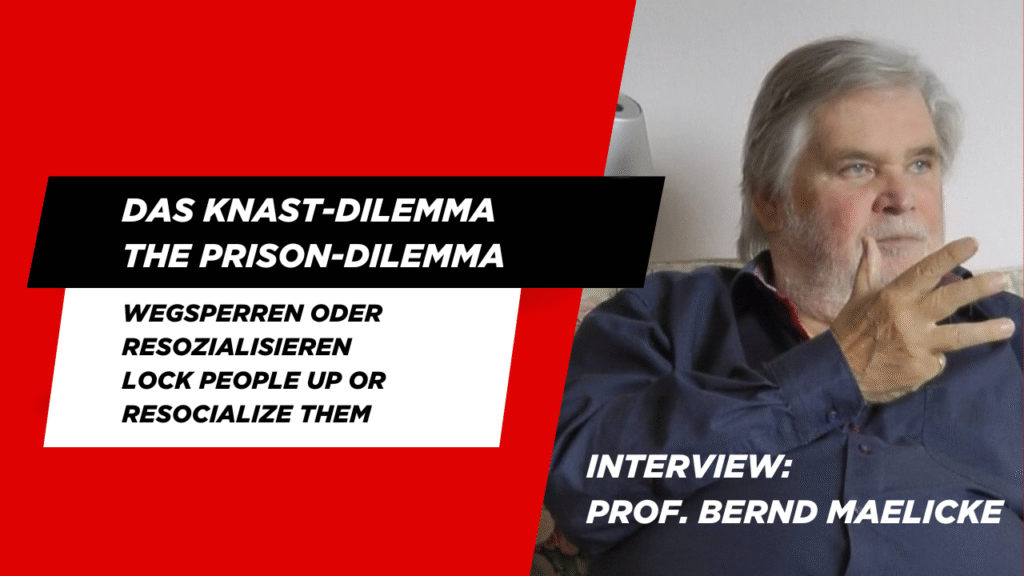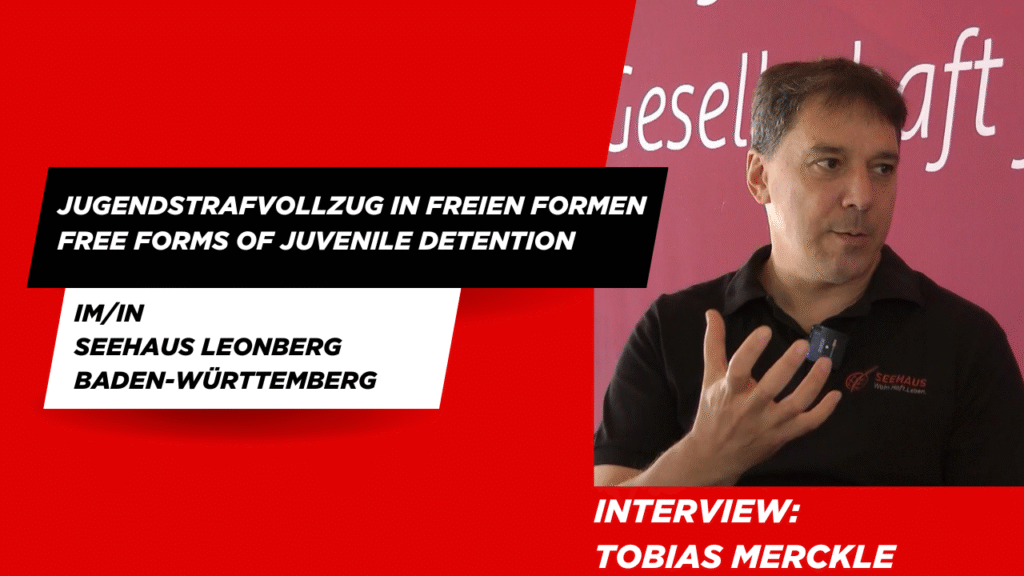Previous Article
News
“Krimstics”: Enhancing probation and parole officers’ therapeutic skills
The way in which probation and parole officers work with clients on supervision has changed profoundly in the Swedish Prison and Probation Service. Over the past five years, with the aim of increasing adherence to key principles of offender rehabilitation, a new model for structuring supervision practice and targeting offenders’ attitude and behaviour change has been nationally implemented and evaluated. From the organisational side, the implementation has been driven by the vision of modern probation practice, which is unified, credible and evidence-based.
An article by Dr. Louise Starfelt Sutton, research manager, research and evaluation unit of the Swedish Prison and Probation Service
Introducing “Krimstics” in the Swedish Probation and Parole Service
The staff training model Strategic Training Initiative in Community Supervision, in Sweden called Krimstics, is based on the principles of risk, need, and responsivity (Bonta & Andrews, 2017) and focuses on building and maintaining probation and parole officers’ therapeutic skills. At the core of Krimstics is the envisioned transition of the probation and parole officer from a case manager, who coordinates rehabilitative services, to a change agent, who actively works with clients’ behaviour change in supervision sessions. To reach this goal, the supervision period, normally 12 months, is structured around a series of stages:
- Assessing the client’s recidivism risk and treatment needs by using a structured risk-needs assessment tool;
- Building a collaborative relationship with the client;
- Establishing a common ground for working with attitude and behaviour change by introducing techniques based on cognitive behavioural therapy;
- Identifying and challenging pro-criminal attitudes and behaviours, and exploring pro-social alternatives.
Staff training focuses on teaching probation and parole officers skills and therapeutic techniques based on cognitive behavioural therapy. Krimstics aims to be responsive to the client’s learning style and abilities by using simple language, a clear structure and continuous report-building. There is also a commitment to the long-term maintenance and development of skills in Krimstics, with ongoing clinical support activities for probation and parole officers. These activities include monthly meetings and yearly refresher trainings to discuss and practice skills as well as formal clinical feedback.
Adherence to risk, need, and responsivity (RNR)
Between 2014 and 2017, more than 700 probation and parole officers were trained in Krimstics in Sweden and, in parallel, a systematic evaluation of the model’s implementation was conducted. The evaluation aimed to examine adherence to the principles of risk, need, and responsivity (RNR) as Krimstics was introduced. By collecting and analysing 545 audio-recordings of supervision sessions from 96 probation and parole officers over 2 years, the results consistently showed an increased quality in probation and parole officers’ interactions with their clients. These interactions became more structured, more relationship-focused and more therapeutic after probation and parole officers had received training and clinical support in Krimstics.
Challenges in adhering to RNR-principles were also identified. Although Krimstics-trained probation and parole officers more clearly focused on relevant treatment needs in their discussions with clients in supervision sessions, this effect was not maintained over time. Key therapeutic techniques showed relatively poor quality, despite improvements over time. Also, by examining the contact frequency between probation and parole services and clients with low, medium, or high recidivism risk over twelve months of supervision, it was clear that the intensity of contact was not differentiated according to the risk of reoffending. Overall, and in conflict with recommendations in the research literature, medium and high risk clients had a relatively low contact frequency. These challenges in adhering to RNR may hinder the model’s primary goal of reducing recidivism.

Where do we go from here?
Attitudes which support a criminal lifestyle are dynamic and amendable to change and are therefore appropriate targets in efforts to rehabilitate offenders. In Sweden, probation and parole officers have demonstrated positive changes in the way they interact with clients as the staff training model Krimstics has been implemented. The probation and parole service now has the task of identifying and challenging the barriers of initiating and maintaining intensive and extensive contact with high risk clients on supervision. Resources could, and should, be redirected from low risk clients. Also, opportunities for probation and parole officers to further develop and practice key therapeutic skills should be prioritised. Addressing these challenges will likely increase the potential for supervision practice to effectively promote clients’ behaviour change.

Related News
Keep up to date with the latest developments, stories, and updates on probation from across Europe and beyond. Find relevant news and insights shaping the field today.

Probation in Europe, Technology
Have Your Say: EU Call for Evidence on the Digitalisation of Justice (2025–2030)
18/08/2025
The European Commission has opened a Call for Evidence on the Digitalisation of Justice: 2025–2030 European Judicial Training Strategy.
Reading corner

Criminal Justice
Parole Futures
18/08/2025
At a time when many parole systems are experiencing considerable strain, the aims of this collection are twofold: first, to encourage systematic and critical reflection on the rationalities, institutions and practices of parole. Second, to think big, and pose ambitious ‘what if’ questions about the possible futures of parole and prison release. Offering novel insights from Asia, Australia, Europe, North America and South America, this collection builds the case for, and then showcases, a ‘way of doing’ parole research that is global in outlook, interdisciplinary in approach and unapologetically normative in character.
New

Probation in Europe
New Vodcast Episode: Prof. Bernd Maelicke on The Prison-Dilemma
12/08/2025
The 13th episode of Division_Y features an in-depth conversation with Prof. Bernd Maelicke, one of Germany’s most respected voices in prison and probation reform.
New

Probation outside Europe
CEP Ambassador Steve Pitts Receives Prestigious Japanese Honour
05/08/2025
We are pleased to share that CEP Ambassador Steve Pitts has been awarded the prestigious Order of the Rising Sun, Gold Rays with Rosette by the Government of Japan. The honour was officially presented on 25th July 2025 at a formal ceremony held at the Japanese Ambassador‘s residence in London, hosted by the Japanese Ambassador.
New

CEP Events
Mark Your Calendars: Exciting Probation Events Ahead
30/07/2025
As the season continues, we’re looking ahead to a dynamic line-up of events across Europe. From specialised workshops to international training and conferences, there’s something valuable for everyone working in probation and beyond.
New

Probation in Europe
New Vodcast Episode: Tobias Merckle on Free Forms of Juvenile Detention
12/07/2025
The 12th episode of Division_Y features an engaging discussion with Tobias Merckle, a social worker and social entrepreneur from Baden-Württemberg, Germany.
Subscribe to our bi-monthly email newsletter!
"*" indicates required fields
- Keep up to date with important probation developments and insights.

